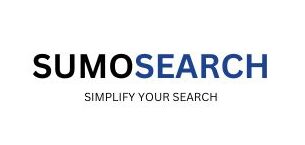Why Medical Data Labelers are Critical to Patient Care
In the swiftly evolving area of healthcare, facts performs an essential position. From diagnostics to treatment making plans, medical records drives selection-making strategies that keep lives. However, the effectiveness of these procedures is based closely at the accuracy and employer of records.
This is in which medical facts labelers come in. These experts, at the side of the support of advanced technologies, make sure that complex clinical information is dependent and meaningful, in the long run enhancing affected person care.
The Role of Medical Data Labeling
Medical facts labeling entails categorizing and annotating enormous quantities of medical records. This includes imaging information, patient statistics, laboratory consequences, and greater.
The aim is to make this statistics on hand for system studying models, clinical research, and healthcare experts. Without proper labeling, precious statistics may want to stay unusable, delaying critical insights and patient consequences.
Streamlining Diagnostics
One of the number one benefits of medical records labeling is its contribution to accurate diagnostics. By structuring imaging facts and other facts, scientific practitioners can get admission to insights quicker, main to quicker diagnoses.
Outsourcing statistics labeling responsibilities to specialised records labeling vendors ensures this technique is treated correctly and accurately.
Enhancing Treatment Plans
Accurate data labeling also aids in developing personalized treatment plans. With labeled datasets, AI-driven tools can analyze patterns and suggest tailored interventions. This collaborative approach between human expertise and machine intelligence is transforming modern medicine.
Supporting Medical Research
Medical researchers rely on annotated datasets to identify trends and breakthroughs. Proper labeling ensures these datasets are reliable and comprehensive, fueling advancements in areas such as drug development and epidemiology.
Why Outsourcing Medical Data Labeling Makes Sense
Given the complexity and volume of medical data, many healthcare organizations opt for data labeling outsourcing. Partnering with a data outsourcing company or utilizing externalisation data labeling services offers several advantages.
Access to Expertise
Outsourcing enables healthcare providers to tap into the expertise of specialized data labeling providers. These professionals understand the nuances of medical data and ensure high-quality labeling, reducing errors and inefficiencies.
Cost-Effectiveness
Hiring in-house teams for medical data labeling can be costly. By choosing to outsource data labeling, organizations save on recruitment, training, and operational expenses. This approach allows them to focus resources on core healthcare functions.
Scalability
Outsourcing also provides the flexibility to scale labeling operations as needed. Whether dealing with a surge in patient data or a new research project, labeling services can quickly adapt to meet demand.
The Importance of High-Quality Labeling Providers
Not all data labeling providers are created equal. To ensure patient care remains the top priority, it’s crucial to partner with reputable providers who adhere to strict quality standards. High-quality labeling reduces the risk of errors that could compromise diagnostics, treatment plans, or research outcomes.
Key Features of Reliable Providers
- Domain Expertise: Providers with experience in healthcare data ensure annotations align with medical standards.
- Data Security: Protecting sensitive patient information is paramount. Reliable companies implement robust security measures.
- Technological Capabilities: Advanced tools and platforms enhance the efficiency and accuracy of labeling services.
The Future of Medical Data Labeling
As healthcare maintains to combine superior technologies, the call for for fantastic medical facts labeling will only grow. Machine gaining knowledge of models and AI tools are becoming essential to affected person care, and these technologies depend upon properly-classified datasets.
By embracing data labeling outsourcing, healthcare providers can stay ahead in this rapidly changing landscape. The synergy between human expertise and innovative tools ensures that medical data labeling will remain a cornerstone of improved patient outcomes.
Conclusion
Medical facts labelers are critical to the destiny of healthcare. Their work ensures that essential scientific statistics is on the market, correct, and actionable. For healthcare providers looking to optimize their facts strategies, partnering with a depended on records outsourcing enterprise for labeling services could make all of the difference. By doing so, they no longer most effective improve operational performance however also make contributions notably to improving affected person care and advancing clinical research.

